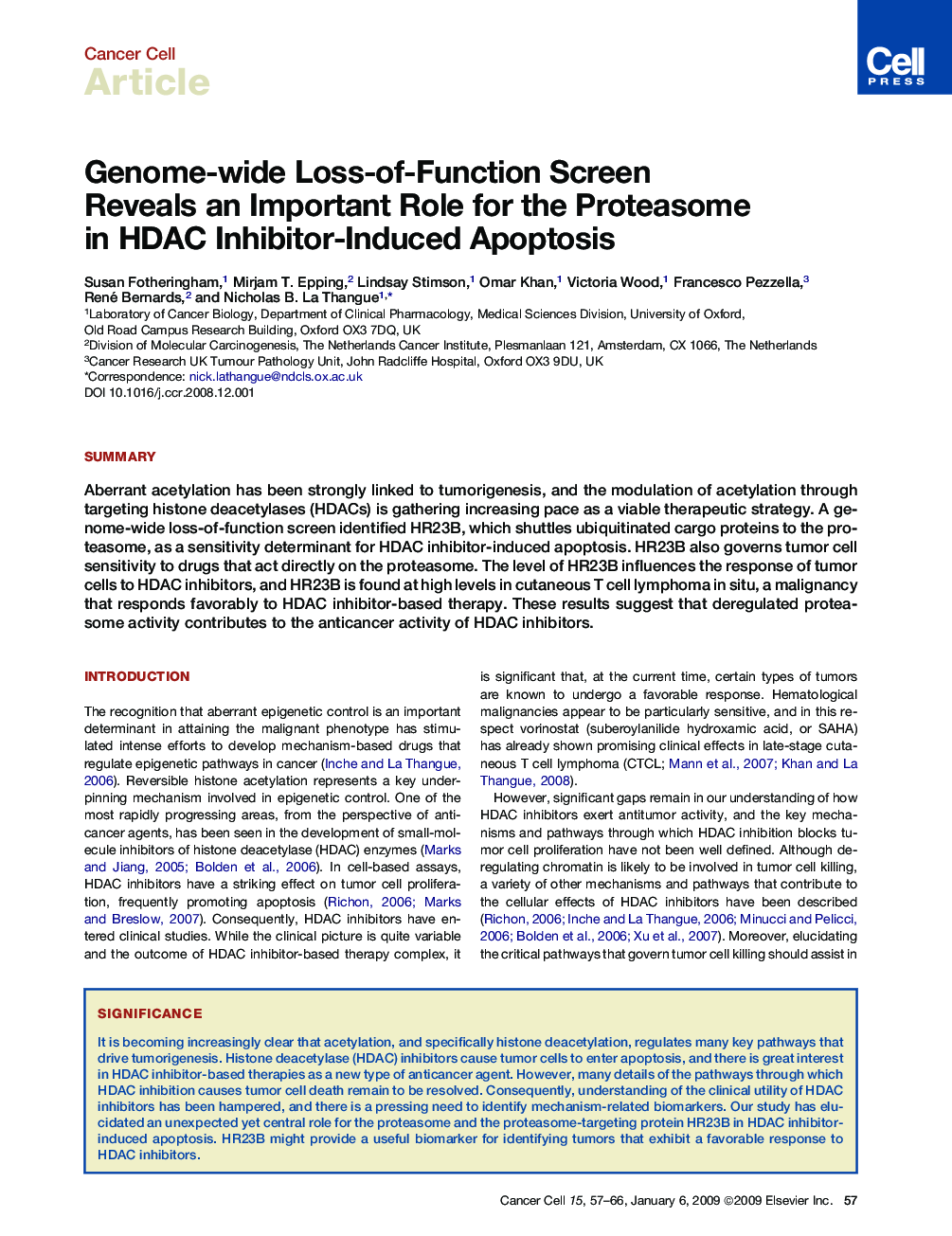| Article ID | Journal | Published Year | Pages | File Type |
|---|---|---|---|---|
| 2108394 | Cancer Cell | 2009 | 10 Pages |
SummaryAberrant acetylation has been strongly linked to tumorigenesis, and the modulation of acetylation through targeting histone deacetylases (HDACs) is gathering increasing pace as a viable therapeutic strategy. A genome-wide loss-of-function screen identified HR23B, which shuttles ubiquitinated cargo proteins to the proteasome, as a sensitivity determinant for HDAC inhibitor-induced apoptosis. HR23B also governs tumor cell sensitivity to drugs that act directly on the proteasome. The level of HR23B influences the response of tumor cells to HDAC inhibitors, and HR23B is found at high levels in cutaneous T cell lymphoma in situ, a malignancy that responds favorably to HDAC inhibitor-based therapy. These results suggest that deregulated proteasome activity contributes to the anticancer activity of HDAC inhibitors.
